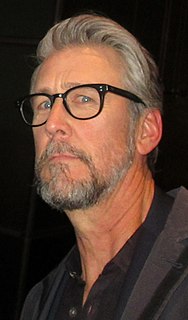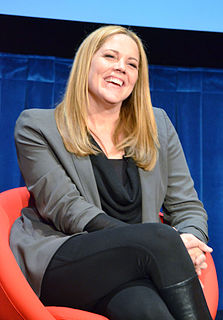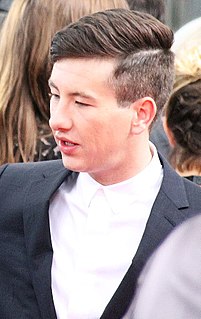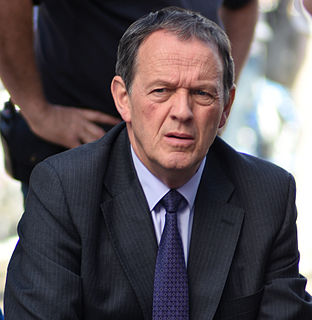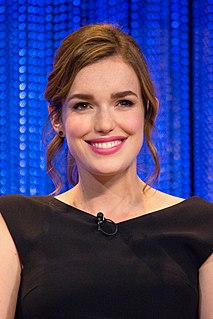A Quote by Alan Ruck
I actually think film and TV are sort of the same thing now. To me they're all motion pictures. There's a camera, a script, other actors and a director. Doing a sitcom is a little different. It's kind of a hybrid, half movie, half play, presented in a proscenium fashion - the camera's on one side of the line, the set on the other, the audience sitting behind the cameras.
Related Quotes
A lot of people have experimented with hidden cameras and magic before. What I do, which I think is different from any other style of prank or hidden camera, is that it's all fun. It's back to that kind of fun that 'Candid Camera' was. It's not mean-spirited at all. It's a joyful kind of play with people.
With a good script a good director can produce a masterpiece; with the same script a mediocre director can make a passable film. But with a bad script even a good director can’t possibly make a good film. For truly cinematic expression, the camera and the microphone must be able to cross both fire and water. That is what makes a real movie. The script must be something that has the power to do this.
Acting is always sort of the same - like you want to be - you know you're pretending and you want to make it as real as you can. That's the similarity. The mediums other than that are completely different. I mean you know with camera work you're doing really small detailed work and you know if you do anything too big you've sort of failed. And with stage, especially with the play I'm doing right now, I'm doing a farce, and it's so over the top that you can't actually be too big. So it's just completely different.
Most people assume because I'm an actor that's all I know about and care about, I'm actually a camera geek and a film geek. I grew up making short films the same time I was acting. For me, it's a motion picture, not a play. I'm just as interested in what the camera department is doing and world building through costume design and production design as I am in acting. I think all good directors do that whether they're an actor or not.
The first thing I say when people ask what's the difference [between doing TV and film], is that film has an ending and TV doesn't. When I write a film, all I think about is where the thing ends and how to get the audience there. And in television, it can't end. You need the audience to return the next week. It kind of shifts the drive of the story. But I find that more as a writer than as a director.
To go into more specifics regarding actors, whether they're from Korea or the U.S., all actors know if they are loved by the director. When they feel that love from the director, they respond by giving a great performance on camera. Also, everyone on set - the crew, the actors - they were aware of the film's message and its broad theme, so these big issues were never discussed on set.
The big difference I think between tv and stage is definitely the immediate buzz that you get. And that's not just as an actor, as an audience member you're getting the chance to have this kind of two-way process where the actors and the audience are experiencing the same thing. With tv you often have to wait months and months down the line to actually get the pay-off. Whereas with theatre it's a very immediate thing.
When you're doing a play, you're onstage, there's no stopping or starting, there's no stopping to reposition for the camera or have a check done. You're there 'till the end of the show. What that gives you is a great gift, which is to command the audience, and you get to play with your script and your fellow actors. Every night, it's different. Hopefully it goes well and you get a great response. But the technique that you have to have on film or television is so delicate. It's fine-tuning. That is very different from being onstage, but they both have important skill sets.
